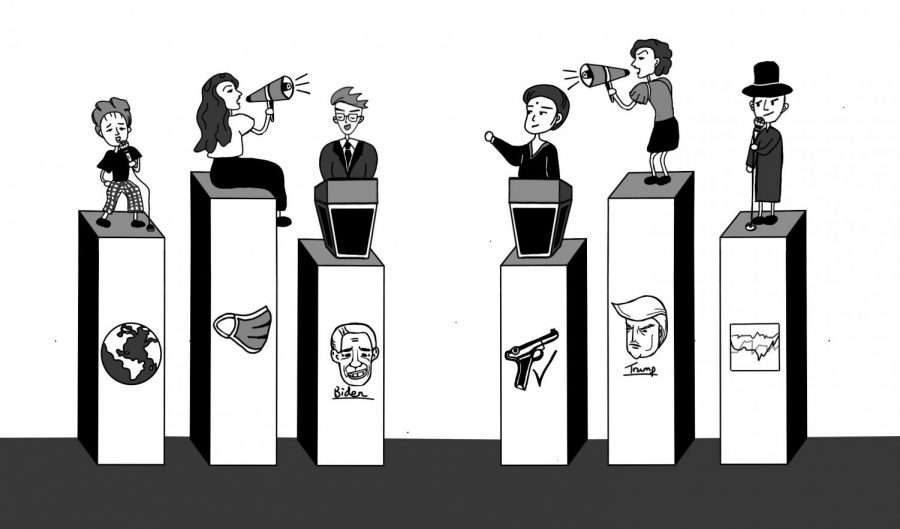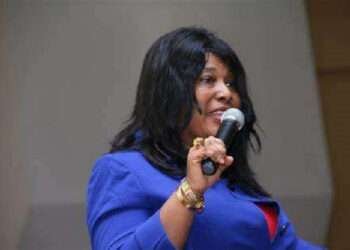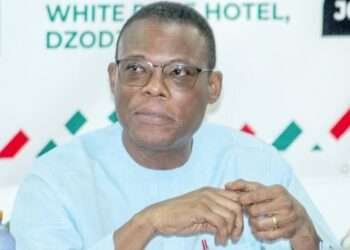Advocating for politics of substance, Prof. Kwaku Azar Asare, an astute lawyer, emphasized that when politics focuses on ideas and problem-solving, it cultivates an environment conducive to open dialogue and debate.
He indicated that in such an atmosphere, individuals can collaborate effectively, free from personal animosity.
According to Prof. Asare, this approach not only enhances civic discourse but also fosters mutual respect, ultimately leading to more effective governance and solutions to societal challenges.
“In this environment, disagreements are seen as opportunities to explore different perspectives and arrive at more robust solutions. People feel free to express their views, knowing that the ultimate goal is to address shared challenges and improve society for the common good.
“Disputes are seen as part of the democratic process, where diverse viewpoints contribute to better decision-making, and respect for differing opinions is maintained”.
Prof. Kwaku Azar Asare
Prof. Asare indicated that when politics shifts to become a vehicle for securing profits, privileges, or power, it transforms into a zero-sum game.
He indicated that in this framework, resources, opportunities, and influence are seen as limited commodities.
Prof. Asare stated that as a result, any gain by one group is perceived as a direct loss for another, leading to heightened competition and conflict.
This adversarial approach, he stressed, stifles collaboration and undermines the potential for collective problem-solving, ultimately hindering progress and innovation in society.
Prof. Asare indicated that political disagreements have evolved beyond mere differences in viewpoints and have become deeply personal.
He noted that this shift fosters hostility and animosity, making constructive dialogue difficult and polarizing communities, ultimately hindering the ability to find common ground and work toward shared solutions.
He noted that those with opposing views are often perceived not as collaborators in the democratic process “but as adversaries threatening one’s livelihood, status, or security”.
This perspective, the lawyer stated, fosters division and discourages meaningful engagement, ultimately undermining the principles of democracy and effective governance.
Prof. Asare Highlights Existential Stakes in Political Discourse
Furthermore, Prof. Kwaku Azar Asare stated that in such a political environment, the stakes feel existential.
He indicated that in this situations, disagreements are often framed as attacks on an individual’s ability to provide for their family or maintain their status in society.

Prof. Asare stated that in this scenario, political opponents are frequently perceived as enemies.
According to him, this shift leads to a diminished space for constructive dialogue, which is replaced by division and hostility, ultimately leaving critical issues unresolved and hindering progress in addressing societal challenges.
“We see this in action today when it comes to galamsey, which poses an existential threat to our environment, our water bodies, and our future. Despite its devastating consequences, politics focused on personal gain fails to address this crisis, and we are left watching as the destruction continues.
“We see this perversion of politics when so-called liberals cheer the remand of protesters, charged with [a] misdemeanor. We see it when we turn on TV & radio and hear otherwise reasonable people propagating utterly unreasonable positions. We see it when people cheer on hearing that an opponent is ill, etc”.
Prof. Kwaku Azar Asare
As such, Prof. Asare asserted that the public must embrace a politics that prioritizes the common good and unites us in our shared mission.
He advocated for the protection of the environment, the promotion of sustainable growth, and the creation of a brighter future for the next generation.
According to Prof. Asare, embracing the politics of ideas can assist Ghana in tackling its challenges, but this can only happen if citizens shift away from the politics “that prioritizes personal interests over the well-being of our communities.”
He urged Ghanaians to adopt public-interest politics and confront issues like galamsey directly, with a united determination to ensure a better future for everyone.
He cautioned that when politics transitions from serving the public interest to safeguarding personal or group interests, it creates an atmosphere of distrust, making compromise and collaboration increasingly challenging. “That’s where we are and that’s what we must reject!”
READ ALSO: Kais Saied Claims Landslide Amid Opposition Boycott





















